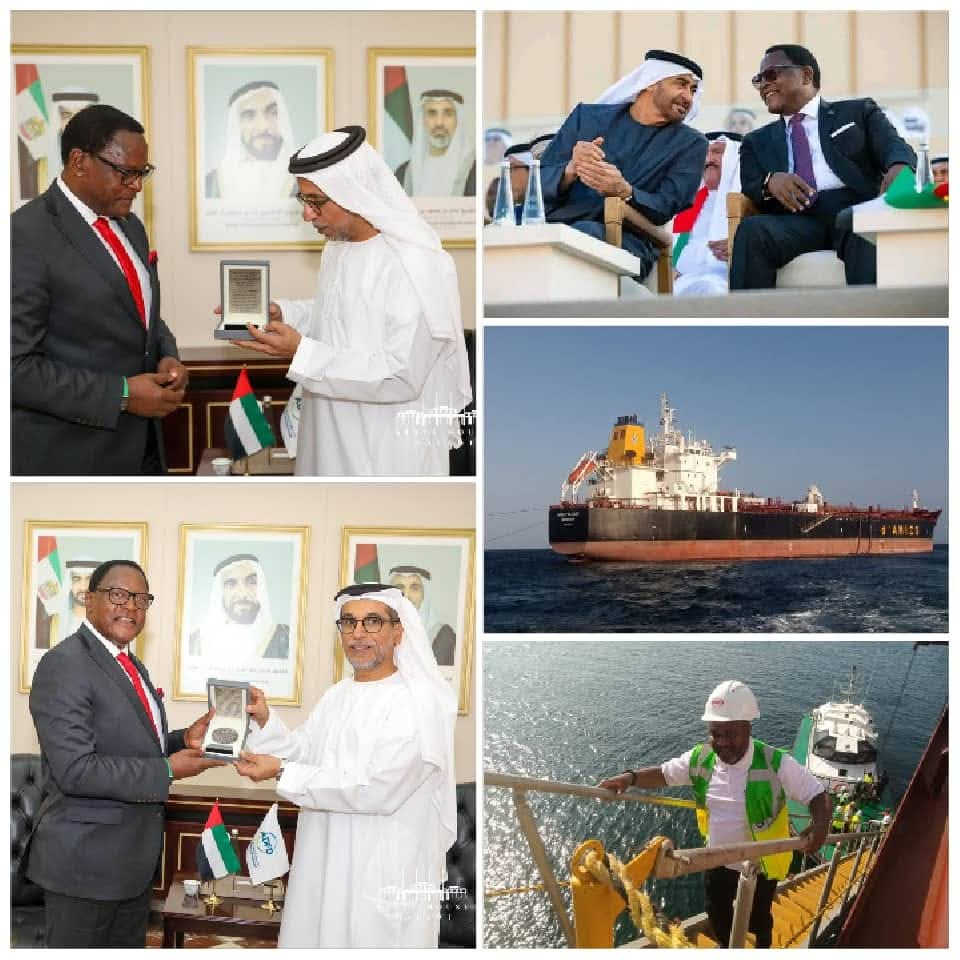
President Lazarus Chawera’s new government-to government (G2G) arrangement for importing fuel to address the current fuel shortage in the country has started bearing fruits, with the ministry of energy announcing that Malawi will start receiving 51.1 million litres of fuel from Saudi Arabia next week.
Minster of Energy Ibrahim Matola in a statement on Friday announced that the Government of Malawi has procured 51 million litres of petrol and diesel from the United Arab Emirates to ease the ongoing fuel shortage in the country.
The statement said the 40,000 metric tons (about 51.1 million litres) of fuel, procured under the Kenyan bilateral arrangement with Lilongwe, with start arriving into the country on Thursday next week.
” This emergency fuel procurement aims to supplement the normal fuel imports by NOCMA, Petroleum Importers Limited, and other licenced petroleum importers which have faced challenges in accessing fuel importing financing leading to the current fuel shortages,” said Matola in the statement.
Malawi’s annual fuel import bill stands at $600 million, while the country generates $1 billion in forex annually.
Last month, Malawi Parliament passed the Liquid Fuels and Gas (Production and Supply) Act (Amendment) Bill to facilitate the transition from open tender to government-to-government procurement of fuel.
The new law is meant to operationalise President Lazarus Chakwera’s directive to transition from the open tender system to a government-to-government procurement process and gives the Minister of Energy the power to nominate an agent or State entity to import fuel without the oversight prescribed in the Public Procurement and Disposal of Assets (PPDA) Act of 2017.
“Currently, Nocma uses so many suppliers, and so does Petroleum Importers Limited (PIL), but these suppliers import in smaller quantities each, which means they don’t enjoy quantity discounts. Malawi ends up paying more for fuel due to the lack of economies of scale and a fragmented supply chain” said Matola recently.
Under the new arrangement, Nocma will now be able to procure fuel in large quantities from major international oil companies such as the Abu Dhabi National Oil Company (Adnoc), Emirates National Oil Company (Enoc), and Saudi Aramco, among others.
By dealing directly with these oil giants, Malawi will likely secure better pricing and more favorable credit terms.
“With Nocma applying for foreign exchange, the correct demand will be reflected, which will result in a stabilization or even an appreciation of the local currency,” Matola says.
Additionally, the G2G framework will provide more flexibility in payment terms, allowing Nocma to negotiate better credit facilities with oil producers.
“The G2G arrangement will provide more extended credit periods, which will help the country manage its cash flow and avoid the perennial fuel stock-outs that we have witnessed in the past,” Matola adds.
About 1,409 trucks will be required to haul the 51.1 million litres of fuel from Port of Tanga in Tanzania into the country, says the statement.

